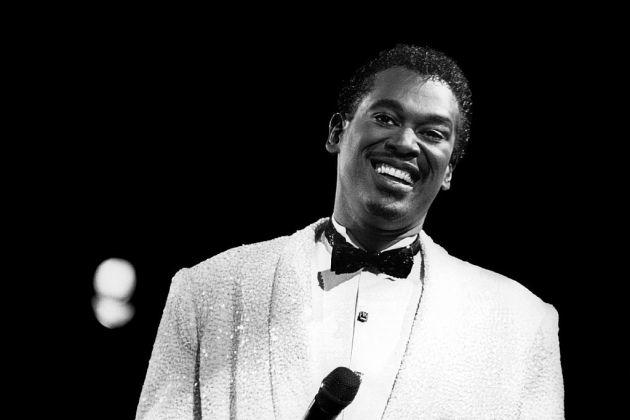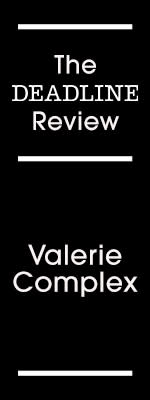‘Luther: Never Too Much’ Review: Dawn Porter’s Tribute To An R&B Icon – Sundance Film Festival

Luther Vandross’ voice was the soundtrack of many Black millennial childhoods. Personally, I would wake up every Sunday to church music followed by his hit single “Never Too Much,” which still stops most people in their tracks to this day. In the documentary Luther: Never Too Much, director Dawn Porter chronicles a his journey to stardom and how he manifested the career he desired.
His path begins in the culturally rich landscape of Harlem’s Apollo Theater. Vandross was influenced by the likes of Dionne Warwick and Aretha Franklin. His earliest musical forays came as part of the group Listen My Brother, which was formed by childhood friends in Harlem committed to harnessing their vocal talents. The group provided not just his first brush with critical acclaim, but an artistic environment steeped in collective ambition that drove him to sharpen his abilities.
More from Deadline

That is until his career took a pivotal turn during a studio session with David Bowie. Vandross’ rearrangement of the title track “Young Americans” helped redefine its groove and introduce a gospel-inspired chorus. Through showcasing both his artistic range and work ethic, Luther earned Bowie’s trust as much more than a session player, but as a creative force to be reckoned with. In the wake of his contributions to the album, he found the conviction to step out of his comfort zone stylistically.
Porter’s narrative portrays Vandross as a man of deep passion and craftsmanship who was a master at controlling his world. Yet, the documentary does not shy away from the challenges the singer faced. One being the racism he experienced in the industry, which manifested in the form of limited budgets for recording time, production and promotional materials. Another was being typecast as an “R&B” artist with no crossover appeal. There was a biased assumption that global listeners lacked interest, even though he incorporated pop, jazz and theatrical influences into songs. A third was finding ways to resonate with young millennial audiences. Vandross took up the challenge to evolve yet again and pushed through on his own terms, keeping his signature style.
Beyond the voice, we also see the singer’s humanity. Fluctuating weight brought intense media scrutiny and cruel fat-shaming. As the documentary shows, jokes about his weight became routine, with comedians taking easy potshots for quick laughs. What the public didn’t see was how the ridicule impacted Vandross’ mental health over time and exacerbated his challenges with compulsive overeating. Behind closed doors, he engaged in cycles of extreme dieting and binging that took a toll both physically and emotionally.
RELATED: Sundance Film Festival 2024 Photos: Award Ceremony, Film Premieres & Parties Gallery
As an intensely private person, Vandross faced constant rumors and speculation about his sexual orientation and personal relationships. The documentary touches on invasive media questions alluding to the singer’s sexuality, which he deflected, refusing to feed into people’s assumptions. However, the secrecy he felt compelled to maintain regarding his intimate life contrasted with the inability to achieve lasting off-stage romance — contradicting the poetic yearning for love immortalized in his lyrics and agonizing over finding a companion to truly share his life with outside the recording studio.
Porter constructs a portrait that strikes a delicate, graceful balance. With interviews and artist narration, Porter steps back and gives the Grammy winner autonomy in recounting his career. His lifelong friends and collaborators flesh out the vulnerable dimensions of a man who compartmentalized his public and private selves. The director allows ample room for the singer’s artistry, while also revealing meaningful context about the business and institutions behind it all. For audiences lacking familiarity, Porter makes a case to appreciate Vandross’ contributions to music, and to culture. And for longtime fans, she has crafted an ode befitting our nostalgia while challenging any and all assumptions.
Title: Luther: Never Too Much
Festival (Section): Sundance (Premieres)
Director-Screenwriter: Dawn Porter
Sales agent: Sony Music Entertainment
Running time: 1 hr 41 min
Best of Deadline
2024 Awards Season Calendar - Dates For Oscars, Grammys, Tonys, Guilds & More
Sundance Film Festival 2024 Photos: Award Ceremony, Film Premieres & Parties Gallery
Sundance Film Festival U.S. Dramatic Grand Jury Prize Winners Through The Years - Photo Gallery
Sign up for Deadline's Newsletter. For the latest news, follow us on Facebook, Twitter, and Instagram.

 Yahoo News
Yahoo News 